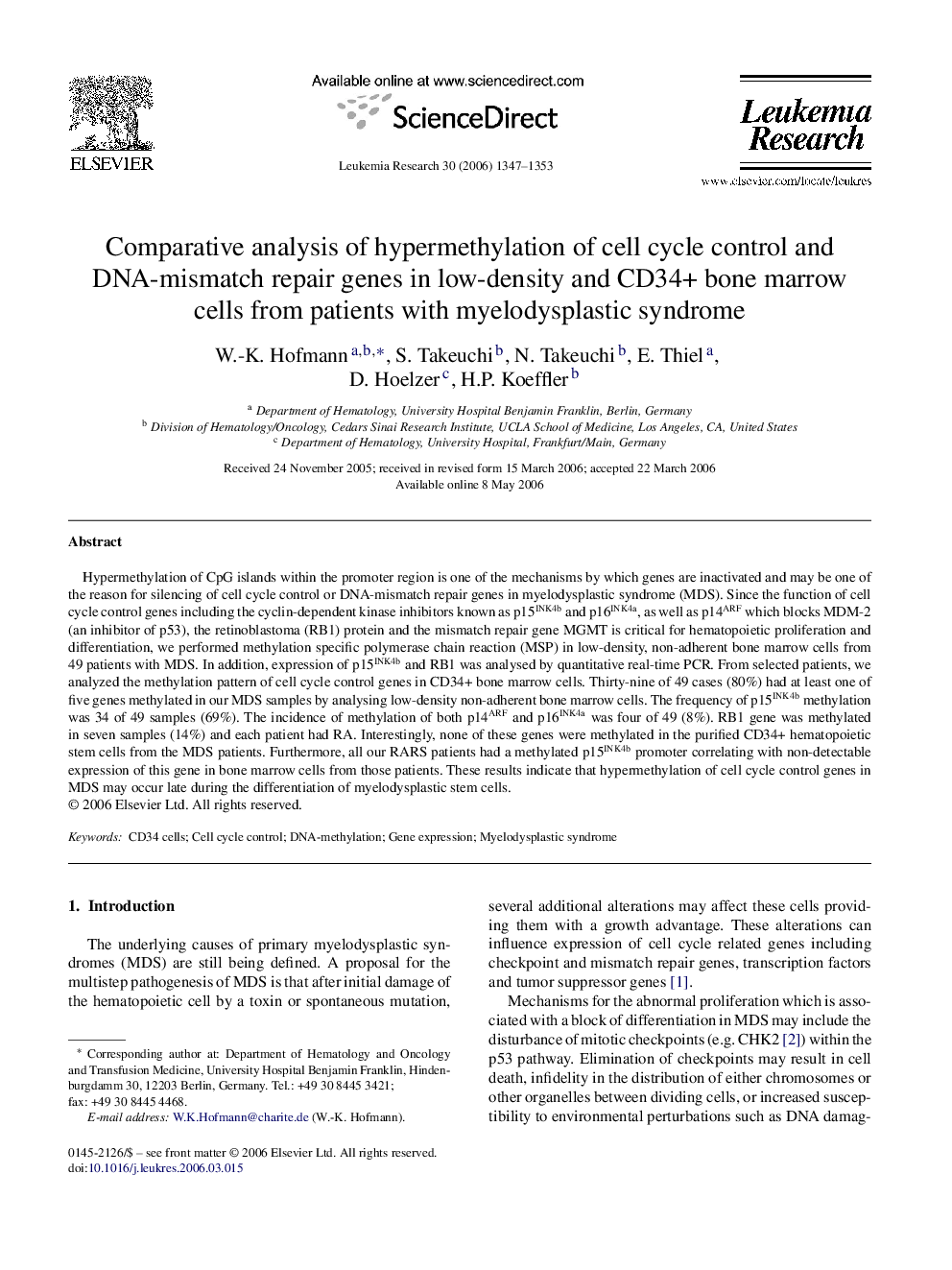| Article ID | Journal | Published Year | Pages | File Type |
|---|---|---|---|---|
| 2138763 | Leukemia Research | 2006 | 7 Pages |
Hypermethylation of CpG islands within the promoter region is one of the mechanisms by which genes are inactivated and may be one of the reason for silencing of cell cycle control or DNA-mismatch repair genes in myelodysplastic syndrome (MDS). Since the function of cell cycle control genes including the cyclin-dependent kinase inhibitors known as p15INK4b and p16INK4a, as well as p14ARF which blocks MDM-2 (an inhibitor of p53), the retinoblastoma (RB1) protein and the mismatch repair gene MGMT is critical for hematopoietic proliferation and differentiation, we performed methylation specific polymerase chain reaction (MSP) in low-density, non-adherent bone marrow cells from 49 patients with MDS. In addition, expression of p15INK4b and RB1 was analysed by quantitative real-time PCR. From selected patients, we analyzed the methylation pattern of cell cycle control genes in CD34+ bone marrow cells. Thirty-nine of 49 cases (80%) had at least one of five genes methylated in our MDS samples by analysing low-density non-adherent bone marrow cells. The frequency of p15INK4b methylation was 34 of 49 samples (69%). The incidence of methylation of both p14ARF and p16INK4a was four of 49 (8%). RB1 gene was methylated in seven samples (14%) and each patient had RA. Interestingly, none of these genes were methylated in the purified CD34+ hematopoietic stem cells from the MDS patients. Furthermore, all our RARS patients had a methylated p15INK4b promoter correlating with non-detectable expression of this gene in bone marrow cells from those patients. These results indicate that hypermethylation of cell cycle control genes in MDS may occur late during the differentiation of myelodysplastic stem cells.
